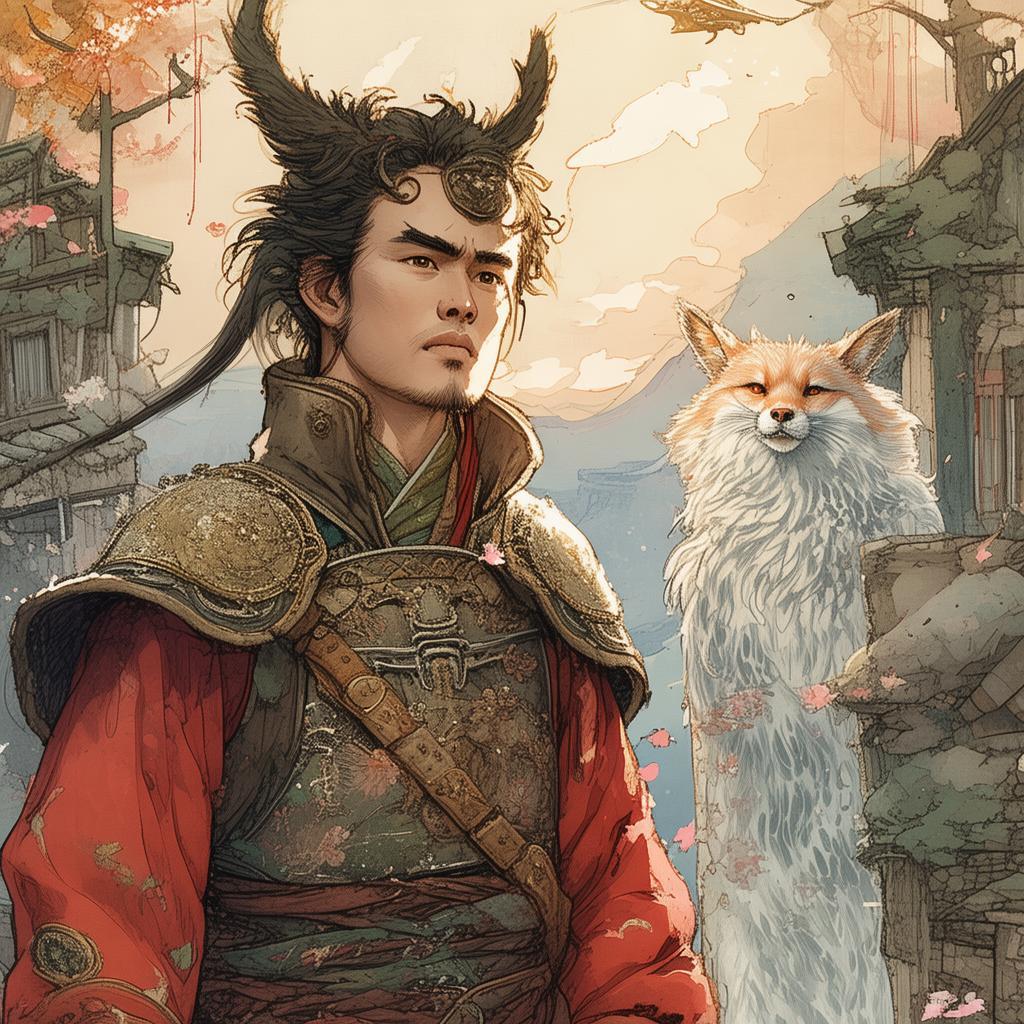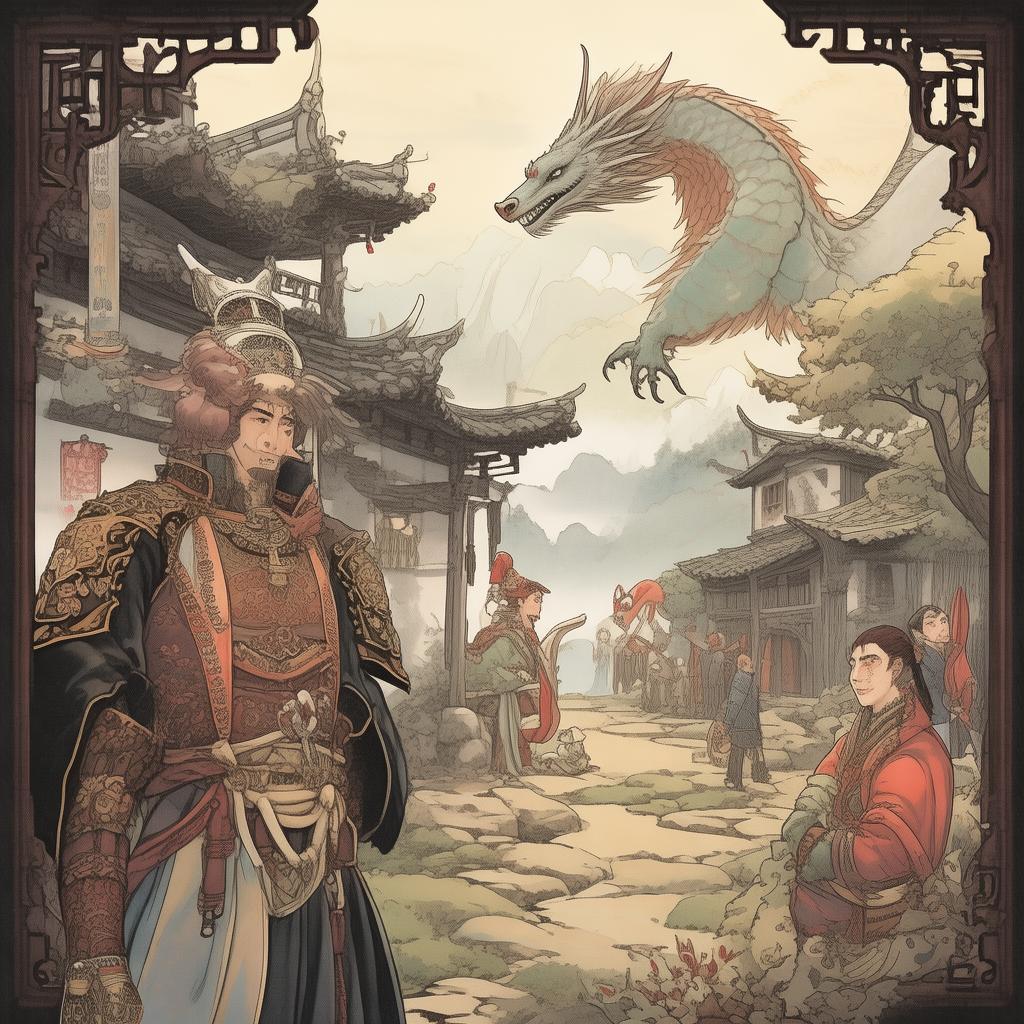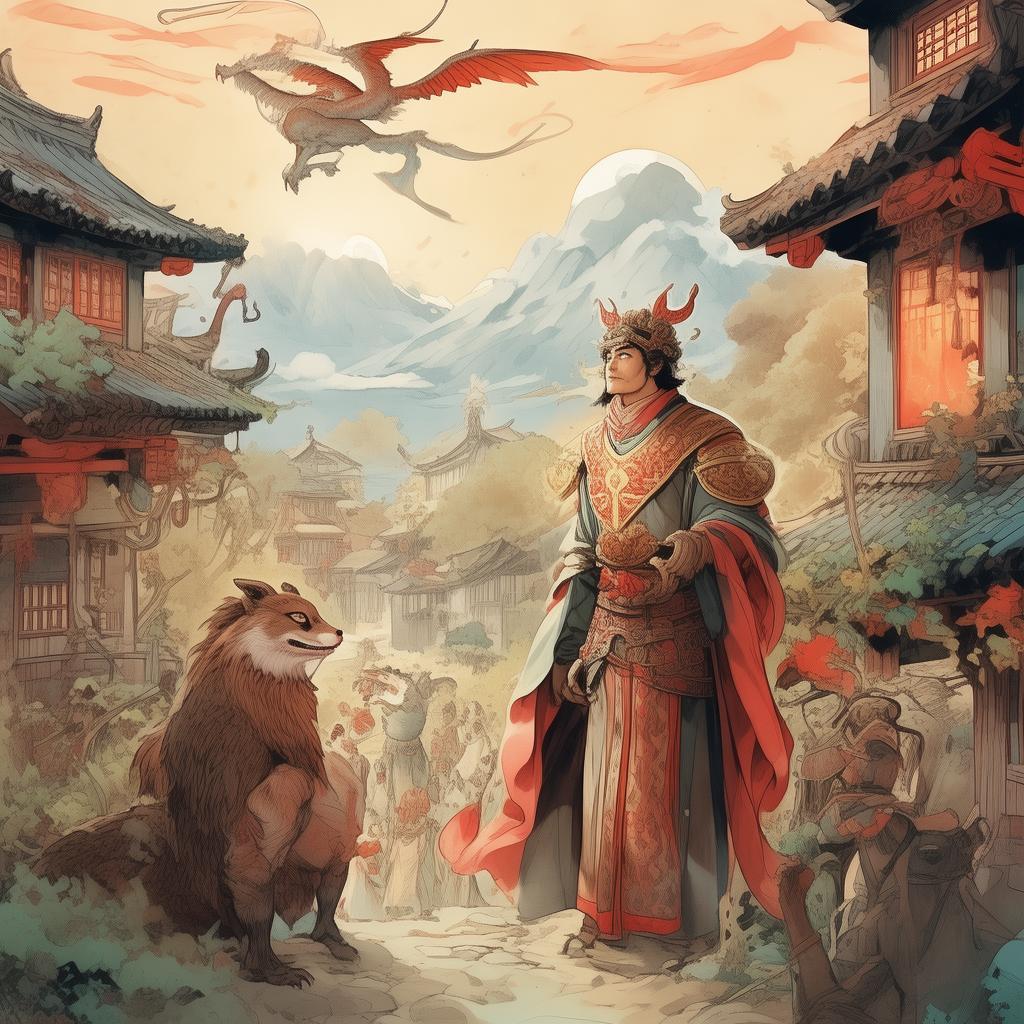Secrets of the Saddlebags: A Nomadic Odyssey
In the heart of the vast steppes, where the sky kissed the earth and the winds whispered ancient tales, there lived a nomadic chef named Khan. Khan was no ordinary wanderer; he was a culinary artist whose soul was as restless as the rolling hills beneath his feet. His saddlebags were not just a home away from home but a treasure trove of flavors, each one a story waiting to be told.
Khan's journey began in the shadow of the Great Wall, where he learned the art of making noodles from his grandmother, who was a master in the ancient ways of nomadic cuisine. The noodles were not just food; they were a testament to the resilience and adaptability of the people who roamed these lands. Each bowl was a reminder of the nomads' ability to thrive in the harshest of conditions, using the simplest of ingredients.
One crisp autumn morning, Khan set out on a new journey. The sky was painted with strokes of gold and crimson, and the air was filled with the scent of the earth as it prepared for winter. Khan's horse, a sturdy steed named Tengri, was his constant companion, a silent witness to the world they traversed.
As they ventured deeper into the steppes, Khan's curiosity led him to a small, forgotten village nestled between two mountains. The villagers were kind but mysterious, and they seemed to share a secret that none were willing to reveal. Khan, with his keen sense of observation, noticed that the villagers, when they gathered, would whisper about a hidden recipe, a secret that had been passed down through generations.
Intrigued, Khan decided to stay. He spent his days working alongside the villagers, helping with the herding and tending to the livestock. In return, they shared their stories and showed him the ways of their ancestors. It was during one of these evenings, around a campfire, that Khan's luck turned.
An old woman, her eyes twinkling with stories untold, approached Khan. "You have a gift," she said, her voice like the rustle of leaves in the wind. "You can taste the earth itself, and you can feel the life in the food you cook." Khan was flattered but puzzled. "What do you mean?" he asked.
The old woman smiled and pulled Khan aside. "We have a secret," she said, her voice dropping to a whisper. "It is a recipe, not for noodles, but for a sauce, a sauce that has been lost to time. It is called 'The Nomad's Secret.' It is made from the rarest of ingredients, each one a symbol of our nomadic heritage."
Khan's heart raced with anticipation. He knew that this was no ordinary recipe. It was a piece of history, a bridge between the past and the present. The old woman handed him a small, worn scroll. "This is the recipe," she said. "But be warned, it is not just a recipe for sauce; it is a quest. You must gather each ingredient in its purest form, and you must understand the spirit of the nomads who once roamed these lands."
Khan's journey then took an unexpected turn. He traveled to the farthest reaches of the steppes, seeking out the ingredients that the old woman had mentioned. He climbed mountains, crossed rivers, and even ventured into the dense forests that bordered the steppes. Each step brought him closer to the truth behind the secret recipe.
One day, Khan found himself in a desolate valley, where the wind howled and the snow lay thick on the ground. It was there that he encountered his greatest challenge. The final ingredient was a rare herb, known only to the oldest nomads, and it grew in a place where the spirits of the ancestors were said to dwell.
Determined, Khan set up camp and began to meditate. He called upon the spirits of his ancestors, asking for guidance and protection. In his meditation, he felt a presence, a gentle nudge from the past. It was then that he realized the true power of the Nomad's Secret.
The herb was not a physical thing but a state of being, a connection to the earth and its rhythms. Khan understood that the sauce was not just a dish; it was a symbol of the nomads' connection to their land, their people, and their history.

With this realization, Khan returned to the village, his heart full of gratitude and a newfound understanding of the nomadic spirit. He prepared the sauce, using the ingredients he had gathered, and as he did, the village came alive with a sense of belonging and community.
The old woman watched with tears in her eyes as Khan poured the sauce over a bowl of noodles. The aroma filled the air, a complex tapestry of flavors that spoke of the nomads' journey. Khan took a bite, and it was as if he was tasting the very essence of his ancestors' lives.
The villagers gathered around, their eyes wide with wonder. Khan explained the significance of the sauce and the quest that had brought him to this moment. The village erupted in cheers, and the Nomad's Secret was once again alive in the hearts of the people.
Khan's journey was far from over, but he knew that he had found his place in the world. He continued to wander the steppes, sharing his story and the secret sauce with those who sought to understand the nomadic way of life.
And so, the tale of Khan, the nomadic chef, and the Nomad's Secret became a legend, passed down from generation to generation, a reminder of the power of tradition, community, and the enduring spirit of the nomads.
✨ Original Statement ✨
All articles published on this website (including but not limited to text, images, videos, and other content) are original or authorized for reposting and are protected by relevant laws. Without the explicit written permission of this website, no individual or organization may copy, modify, repost, or use the content for commercial purposes.
If you need to quote or cooperate, please contact this site for authorization. We reserve the right to pursue legal responsibility for any unauthorized use.
Hereby declared.









